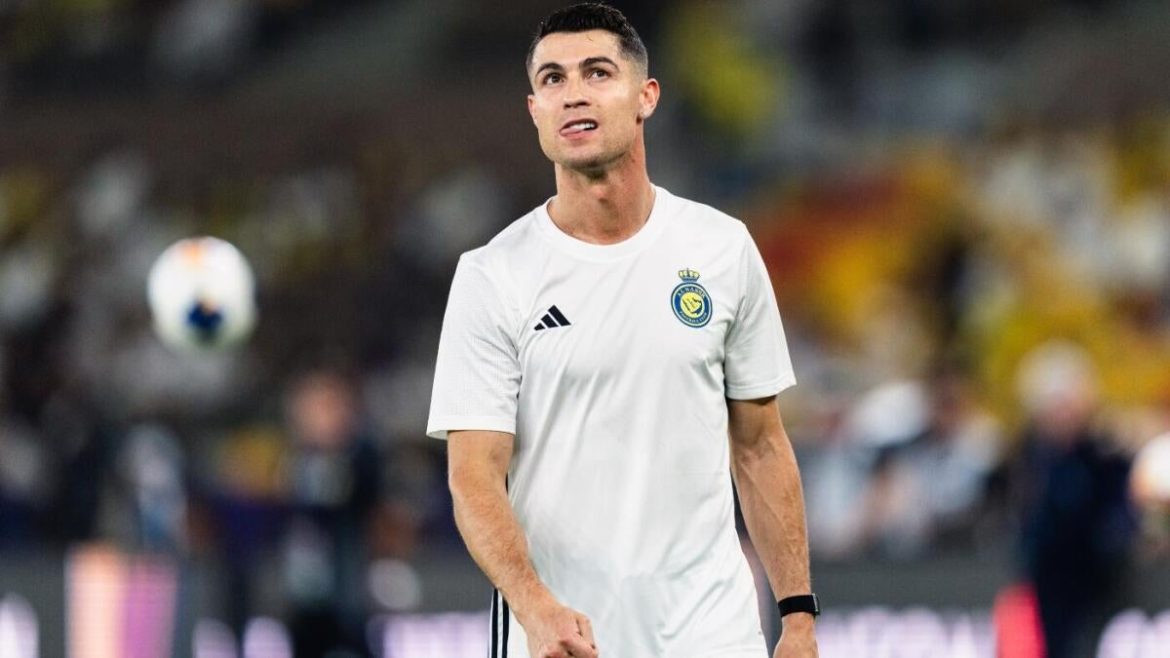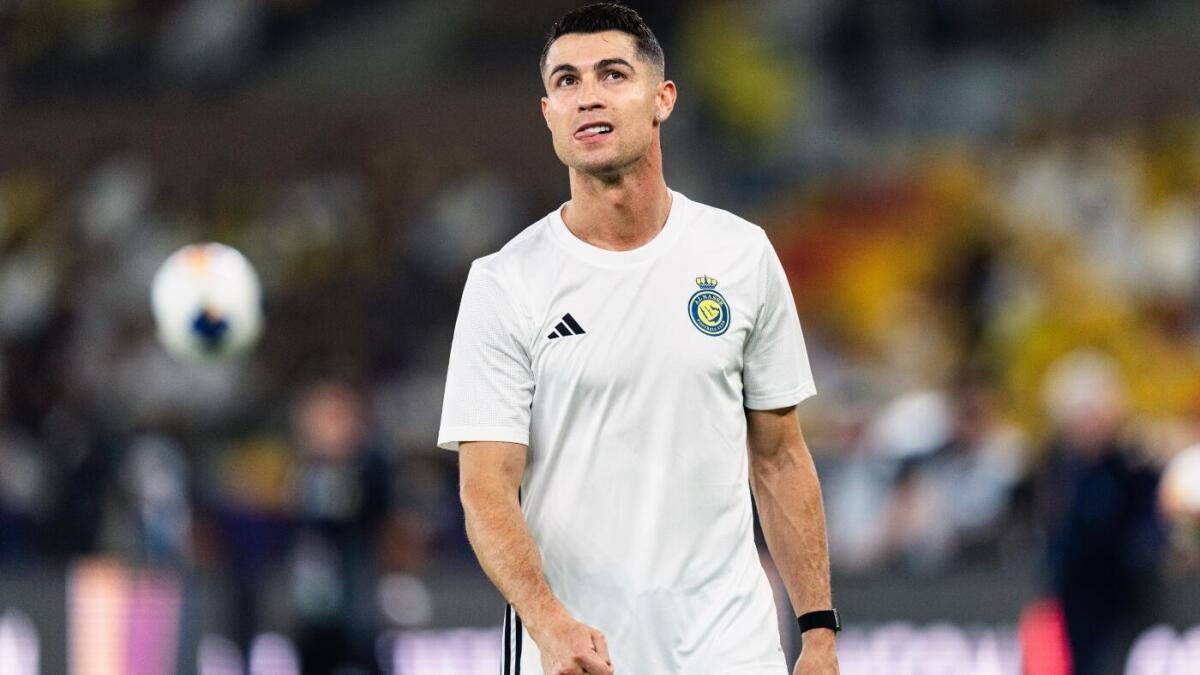Cristiano Ronaldo and the 2025 FIFA Club World Cup: A Comprehensive Exploration
—
Introduction: The High Stakes of a Historic Tournament
The inaugural 2025 FIFA Club World Cup is shaping up to be a landmark event in world football, attracting intense global attention. Central to the spectacle is the possibility of two of football’s greatest icons – Cristiano Ronaldo and Lionel Messi – playing, potentially reigniting their legendary rivalry on a prestigious new stage. While Lionel Messi’s participation with Inter Miami is confirmed, uncertainty surrounds Ronaldo’s involvement due to his club situation and contractual dynamics. This report delves into the multifaceted scenario concerning Cristiano Ronaldo’s potential appearance in the 2025 Club World Cup, unpacking the complexities, opportunities, and implications involved.
—
The Setting: FIFA’s Vision and the Club World Cup Format
FIFA’s expanded Club World Cup is designed to bring together 32 clubs from across the globe, competing in the United States during the summer. This tournament is not merely a new competition but an effort to globalize club football beyond traditional continental tournaments by involving the biggest clubs and stars. With Messi’s Inter Miami securing qualification by winning the Supporters’ Shield, the tournament promises a star-studded roster. FIFA President Gianni Infantino has expressed a strong desire to include Cristiano Ronaldo in order to boost the tournament’s appeal, describing Ronaldo as a “trump card” for ticket sales and global attention.
—
Why is Ronaldo’s Participation Uncertain?
The key issue revolves around Ronaldo’s current club, Al-Nassr from the Saudi Pro League. Al-Nassr has failed to qualify for the Club World Cup, meaning Ronaldo’s potential appearance depends on a unique transfer or loan scenario. His contract with Al-Nassr expires in June 2025, just before the tournament begins. FIFA has introduced a special transfer window allowing players whose contracts end around the tournament to sign short-term deals with participating clubs. This opens the door for Ronaldo to remain in the tournament even without Al-Nassr’s qualification.
However, this is complicated by several factors:
– Transfer Rumors and Realities: Speculation links Ronaldo to a brief spell at Inter Miami, which would enable him to team up with Messi; however, prominent transfer journalist Fabrizio Romano and the Saudi club Al-Hilal (reportedly interested in him) have dismissed these rumors as “science fiction” or fake.
– Other Potential Clubs: Ronaldo might join another qualified club or negotiate a specialized agreement to participate independently of his contract status with Al-Nassr.
– FIFA’s Role: Infantino has stated that discussions are ongoing, reflecting FIFA’s eagerness but lack of concrete confirmation.
—
The Messi-Ronaldo Factor: A Dream or a Mirage?
The prospect of Messi and Ronaldo facing each other again, or even playing together, excites fans worldwide. Their rivalry has defined a footballing era, with individual records and team achievements that set an almost mythical standard. The tournament offers a unique stage for a final showdown or reunion. Yet, practical hurdles remain:
– Timing and Team Commitments: Inter Miami’s roster and tactical plans might not accommodate a short-term star acquisition.
– Contractual Formalities: Short-term loans or free-agent signings for such a high-profile player come with legal, financial, and sporting complexities.
– Competitive Ethics: Some argue that assembling “super teams” just for one tournament could undermine sporting fairness.
Despite these challenges, FIFA seems keen on creating this narrative. Infantino has even floated the idea of Ronaldo joining Inter Miami just for the tournament while respecting transfer regulations designed to facilitate this.
—
Broader Implications for Ronaldo’s Career
At 39 years old (as of 2025), Ronaldo’s career is at a reflective stage. His time in Europe has passed, and Saudi Arabia provided a lucrative yet less competitive chapter. The Club World Cup presents an opportunity for him to demonstrate elite-level competitiveness on a new global platform, potentially enhancing his legacy or signaling a swan song in a major international club competition.
Potential benefits for Ronaldo include:
– Renewed visibility on a global stage alongside or against Messi.
– A chance to impress major clubs or fanbases ahead of a possible retirement or transition.
– Increased commercial and personal branding value through associated media coverage.
On the other hand, the uncertainty of club affiliation may cause professional instability, and short-term moves may not guarantee sustained success or satisfaction.
—
The Role of FIFA and Transfer Regulations
FIFA’s innovative approach to player movement surrounding this tournament is unprecedented. The introduction of an exceptional transfer window specifically to facilitate player participation represents a strategic attempt to merge sporting spectacle with commercial interests. This raises questions about the evolving nature of football governance and the balance between competitive integrity and entertainment value.
Ronaldo’s situation serves as a test case for this new policy:
– Can FIFA successfully navigate contractual complexities to assemble a star-studded tournament?
– Will such moves set lasting precedents in player transfers beyond traditional seasonal windows?
– How will fans and stakeholders react if players switch clubs temporarily purely for this competition?
—
Conclusion: An Unfolding Drama at Football’s New Frontier
Cristiano Ronaldo’s potential involvement in the 2025 FIFA Club World Cup transcends merely a question of player participation; it symbolizes the intersection of tradition, modern commercialism, and evolving sport governance. While the desire to see Ronaldo – and by extension, a Messi-Ronaldo showdown – burns brightly among fans and FIFA officials alike, practical hurdles grounded in contractual obligations, club logistics, and transfer realities create significant uncertainty.
This narrative reflects the broader shifts in football’s landscape where iconic players navigate new forms of mobility and tournaments seek to redefine global appeal. The coming months will decisively determine whether Ronaldo’s extraordinary career will include this new chapter or if the dream of another direct Messi-Ronaldo clash at a Club World Cup remains just that—a captivating dream.
In the immediate term, keeping an eye on negotiation developments, official announcements, and FIFA’s transfer window actions will be crucial for fans and analysts anticipating this historic tournament. Regardless of the outcome, Ronaldo’s influence on football’s global stage remains indelible, and the Club World Cup’s inaugural edition promises a blend of tradition, innovation, and spectacle unlike any before.





